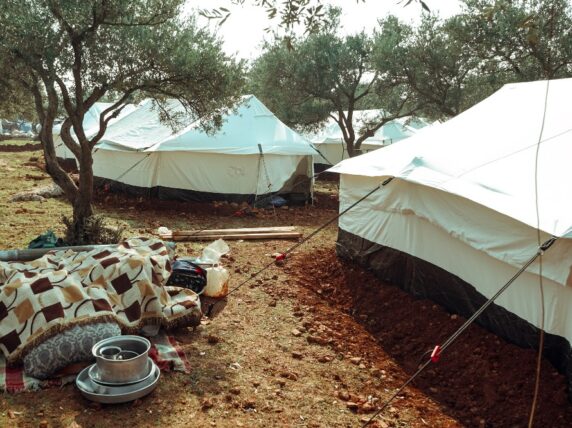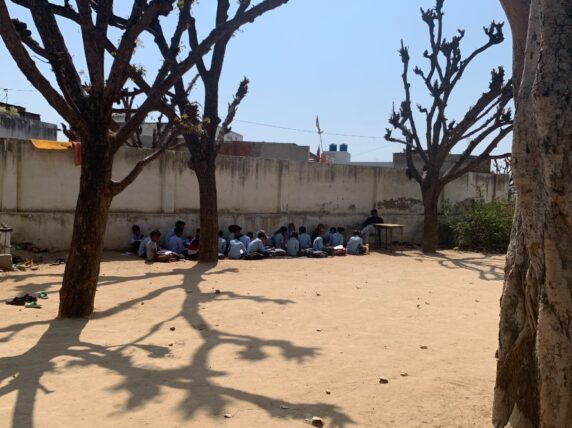How civil society stepped up globally during the pandemic
One year on from the first recorded cases of Covid-19, people in many countries continue to face changes in their daily lives unprecedented in modern times.
People are living not just with the threat of the virus, but with the impacts of emergency regulations that have hit communities hard.
The crisis has tested civil society. Many states used the pandemic as a pretext to repress civic freedoms, while civil society organisations (CSOs) are facing a new scarcity of resources. But at the same time, it’s important to celebrate and learn the lessons of an impressive, multidimensional civil society response that made the difference to so many people.
At global civil society alliance CIVICUS, alongside our work to track the impacts of the crisis on civil society, we’re documenting the ways in which civil society led the response to the Covid-19 crisis. Our report, Solidarity in the Time of Covid-19, sets out how CSOs helped people most in need, filled the gaps left by governments and businesses, defended rights and held governments to account.
Helping those most in need
Often civil society worked to meet fundamental needs, including for food, health and sanitary supplies, and essential services. Civil society strove to help excluded groups missed by state support schemes, and people whose ability to earn an income was blocked by emergency measures. Hundreds of CSOs mobilised in India, for example, to support migrant and informal workers.
Accurate and understandable information on how to protect oneself from the virus and access support schemes was vital. Civil society often translated official information into diverse languages and formats people could understand, frequently through creative means such as music and street art. In Liberia, Youth Alliance for Rural Development worked with grassroots groups to organise community workshops on how to avoid Covid-19. When donors came in later, they were surprised to find that people already had the knowledge they needed.
Subscribe to our newsletter
Our weekly email newsletter, Network News, is an indispensable weekly digest of the latest updates on funding, jobs, resources, news and learning opportunities in the international development sector.
Get Network NewsWhen social distancing meant that communities could not be reached physically, CSOs did what they could to offer alternatives remotely. With gender-based violence soaring under lockdown, Resource Centre for Gender Equality in Lebanon offered a helpline, promoting its use through “camouflage videos” in which subtitled information was smuggled into online videos that women could view safely, without raising the risk of violence from their abusers, while people shared the helpline number from their balconies.
Defending human rights
CSOs that provided essential support also worked hard to defend human rights. Security forces needed to be held to account for abuses committed while enforcing emergency regulations. In Nigeria, Spaces for Change set up an online tracking team to map and monitor restrictions, including police violence, and established a helpline to provide free legal advice.
While there were regrettably few examples of states making room for civil society in emergency planning, civil society worked hard to advocate that shortcomings in state provision be corrected. In Buenos Aires, Argentina, civil society won a court case to ensure that children from poor families would be given laptops and internet access so they could continue to receive education online.
Collective advocacy
One of the lessons of the pandemic was that civil society coalitions could achieve breakthroughs. In Brazil, a coalition of 160 CSOs formed to campaign for an emergency basic income during the crisis.
Recruiting over half a million supporters and working with social media influencers, the campaign was astonishingly successful: within 10 days, a law approving the scheme was passed, and 10 days later, people received their first payments. As well as vital support for tens of millions of Brazilians, the principle of a right to basic income was advanced.
Civil society’s irreplaceable role
These are a few of the many examples we gathered to show that, however difficult the crisis has been, it would have been much harder to bear without civil society. It showed that CSOs are vital to society’s resilience.
The fact that many existing CSOs quickly switched to working in new fields and in new ways to meet the needs of the moment showed the value of capacities and skills that can be rapidly redeployed. It showed the value of funding that enables flexibility. Above all, it proved how wrong states are when they try to repress civic space.
The lesson from the first year of Covid-19 is the need to enable and partner with civil society, and allow civil society to play all its roles, from service provider to advocate and watchdog. It’s important governments learns this lesson now, to better respond to this crisis and ones to come.
“Solidarity in the Time of COVID-19” is available to read and download now.
Category
News & views



